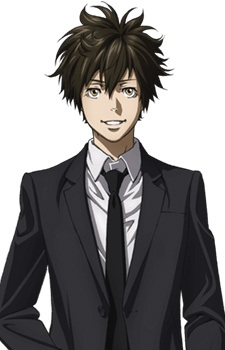
| Japanese Name | 慎導 灼 |
|---|---|
| Romaji Name | Shindou Arata |
| Nicknames | N/A |
| Series | Psycho-Pass 3 |
| Age | N/A |
| Weight | N/A |
| Height | N/A |
| Date of Birth | N/A |
| Blood Type | N/A |
Arata Shindou of “Psycho-Pass 3”: A detailed character analysis
Personality
Arata Shindou is described as a bright and confident individual. He has a slightly goofy and optimistic attitude, but he also shows intelligence and a serious side when the situation calls for it. Arata genuinely cares about others and deliberately puts on a cheerful front so as not to worry them. He firmly believes that the system is not everything and advocates the use of human judgment before resorting to the Dominator, a powerful weapon in the series.
Background
Arata Shindou is an inspector in the Criminal Investigation Division 1 of the Public Security Bureau. He takes on the role of one of the main protagonists in the anime series “Psycho-Pass 3”. As a new Inspector, he works closely with his best friend, Kei Mikhail Ignatov, and together they lead a team of Enforcers.
Appearance
While there are no specific details about Arata Shindou’s appearance in the available sources, he is depicted as a young and energetic character in the anime series “Psycho-Pass 3”. His visual design is likely in line with the aesthetics commonly found in the anime medium, with distinctive hairstyles, expressive facial features, and stylish clothing.
Abilities
Arata Shindou possesses exceptional skills as an A-class profiler with high empathic abilities. He demonstrates the power to transcend mental boundaries and establish a deep connection with his subjects through advanced empathy. This unique ability allows him to understand and visualize the thoughts and emotions of his targets, providing valuable insight into their motivations and actions. However, using this empathic power also makes him vulnerable to physical attack, making it a double-edged sword.
Origin
Arata Shindou originates from the anime series “Psycho-Pass 3” produced by Production I.G. The series serves as a continuation of the popular “Psycho-Pass” franchise, exploring a dystopian future where society is governed by a system that measures and evaluates individuals’ mental states in order to prevent crime. Arata’s character development and contributions to the story unfold throughout the series, showing his growth, relationships, and conflicts within the complex world of “Psycho-Pass”.
Arata Shindou – FAQ
Who is Arata Shindou in “Psycho-Pass 3”?
Arata Shindou is one of the main characters in “Psycho-Pass 3”, a Japanese anime series. He is a new recruit to the Criminal Investigation Division of the Public Safety Bureau, assigned to Division 1.
What is Arata Shindou’s role in Section 1?
Arata Shindou works as an inspector in Section 1. His primary responsibility is to investigate and apprehend individuals with high crime coefficients as determined by the Sibyl system.
What is Arata Shindou’s unique ability?
Arata Shindou has a unique ability called “Digital Psychic Psychotherapy” (DPT). With this ability, he can enter and manipulate the digital world of someone’s Psycho-Pass, allowing him to understand their mental state and possibly influence their behavior.
What makes Arata Shindou’s ability different from other Inspectors?
Arata Shindou’s ability, DPT, sets him apart from the other Inspectors in Psycho-Pass 3. While most Inspectors rely on traditional investigative methods and the judgment of the Sibyl system, Arata can directly interact with the Psycho-Pass system and gain insights that others cannot.
What motivates Arata Shindou in his work?
Arata Shindou is driven by the desire to understand and help others. He is deeply empathetic and believes in the potential for rehabilitation. Arata’s personal experiences and past traumas also influence his dedication to investigating crimes and uncovering the truth.
Will Arata Shindou face any challenges in Psycho-Pass 3?
Yes, Arata Shindou faces many challenges throughout the series. He encounters resistance and skepticism from some of his colleagues due to his unconventional methods and unique abilities. In addition, he must confront his own haunting past and navigate complex moral dilemmas in his pursuit of justice.


